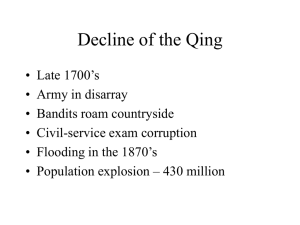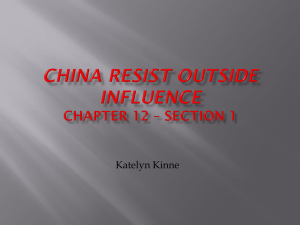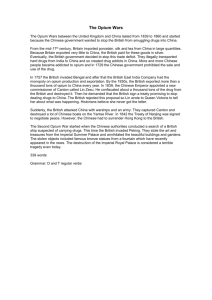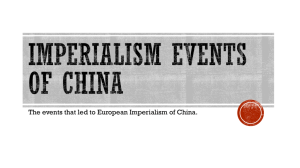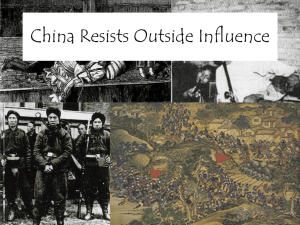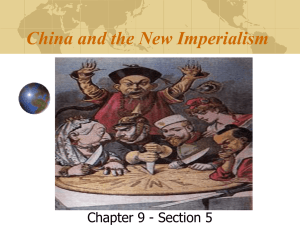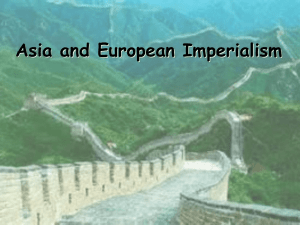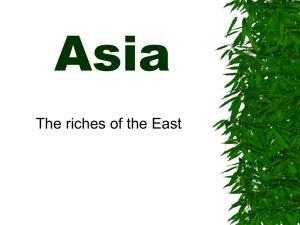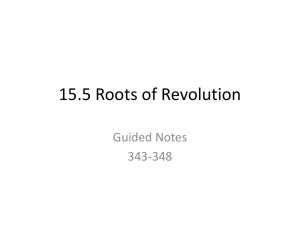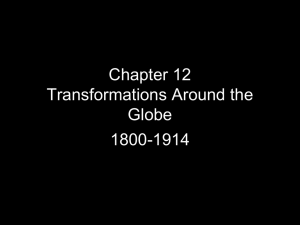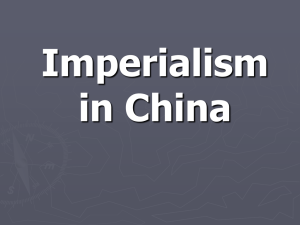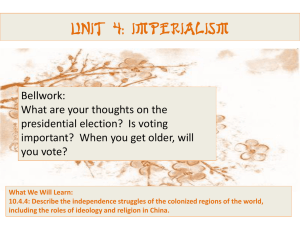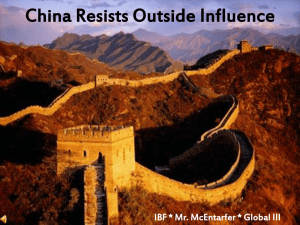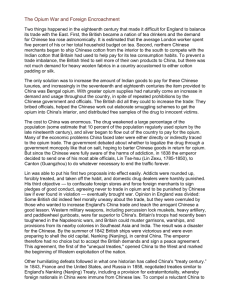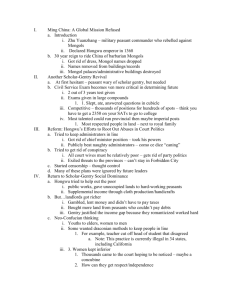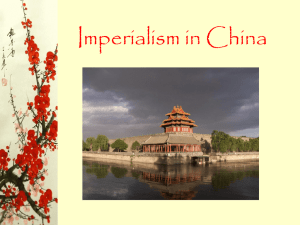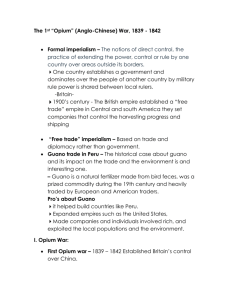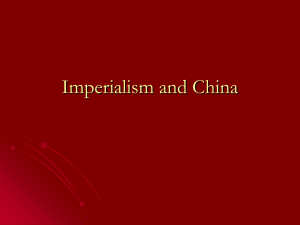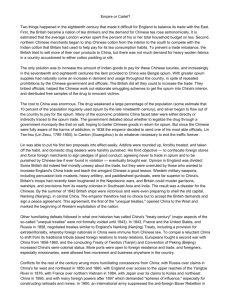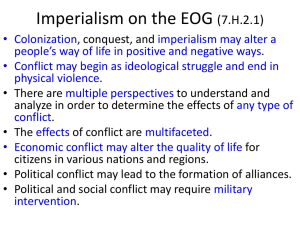world history powerpoint
advertisement
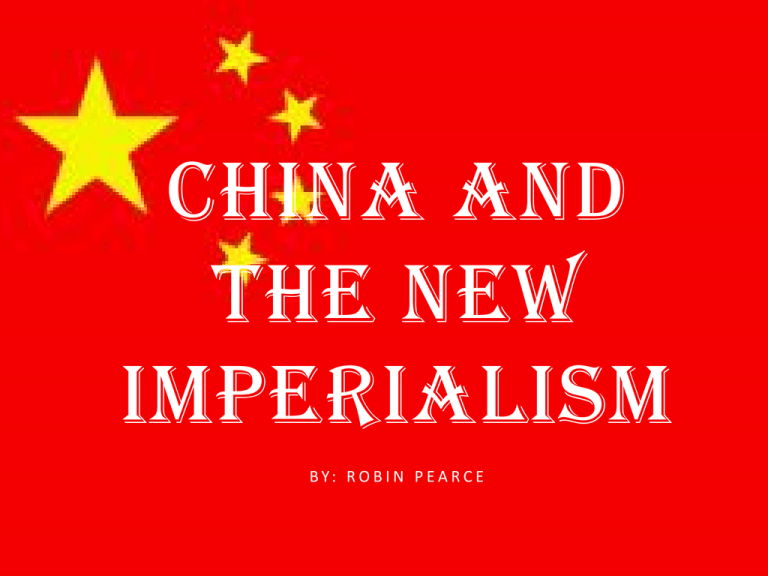
CHINA AND THE NEW IMPERIALISM B Y: R O B I N P E A R C E • By the 1830’s, British merchants were selling opium to the Chinese. Even though it was illegal in Britain. • By the 1800’s western countries started to spread their influence to East Asia. The Trade Issue • China rulers established strict limits on foreign traders only letting them trade around Guangzhou in southern China. This allowed China to export more than they imported. • Westerns had a Trade Deficit with China buying more from China then they sold to them. • In 1796 Britain requested more trading rights only to be refused by the emperor Qianlong. The Opium War • China bought large quantities of opium from British merchants. • China paid large amounts of silver for the opium interrupting the Chinese economy. • China made opium illegal and started executing drug dealers. The British refused to stop selling the opium. • In 1839 Chinese warships attacked the British merchant ships. This triggered what was called the Opium war. • The British easily defeated the Chinese with their outdated weaponry Unequal Treaties • Treaty of Nanjing ended the Opium War. – Britain forced China to sign it. It gave Britain Hong Kong and it forced the Chinese to pay a huge indemnity or payment for losses in the war. – Britain made the Chinese give the British citizens in China the right to live under their own laws and be tried in their courts. – China was forced to build 5 ports open to foreign trade – Lastly, whatever privileges China gave to another nation they HAD to give to Britain. The Taiping Rebellion • Peasants revolted from 1850-1864 as a result of misery and poverty. It was led by Hong Xiuquan who was influenced by the teachings of Christian missionaries. • Hong Xiuquan wanted: – Land Reforms – Community ownership of property – Equality of men and woman – Strict morality – However, he mostly wanted an END TO THE DESPISED QING DYNASTY • The Taiping Rebellion was eventually crushed by regional governors and generals. Effects of The Taiping Rebellion • 20 to 30 million people died. • The lower Yangzi basin was basically destroyed. • The Qing dynasty was almost toppled and as an effect it had to share its power with regional commanders who had rebuilt their region and power base. • Russia seized lands along the Amur River. Reform Efforts • In the 1860’s, reformers launched the “self-strengthening movement” which involved the setting up of: factories to make modern weapons, shipyards, railroads, and the mining and light industry. • China went to war with Japan and was humiliated. This resulted in many western powers and Japan taking land from China. • In 1898, a young emperor, Guang Xu took over and started the Hundred Days of Reform in his attempt to modernize China. • Conservatives overthrew Guang Xu and Ci Xi retook control. Modern Chinese Factory The Empire Crumbles • The Boxer Uprising: – In 1899, a group of Chinese formed a secret society called the Harmonious Fists. Their goal was to expel the foreign powers. They attacked foreign communities across China. – The westerners and Japan organized a multinational force and crushed the rebellion. – As a result of the Boxer uprising China was forced to except terms by the westerners and Japan. China also was forced to modernize. This led to China exploding economically. – By the early 1900’s China introduced a constitutional monarchy. Sun Yixian • Sun was a passionate spokesman for a Chinese republic. • In the early 1900’s he organized the revolutionary alliance. • His goals were to free china from foreign control, the next was to establish a democracy in China, and the last was economic security for all Chinese. • He was named president of the new Chinese Republic on January 1912 after the old empress Ci Xi died.
